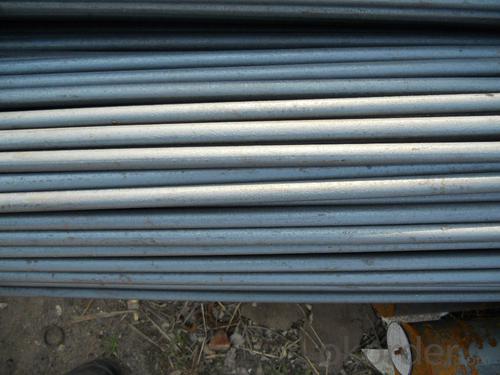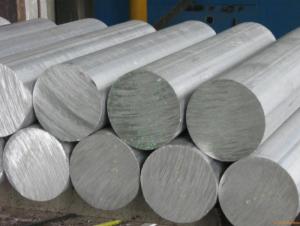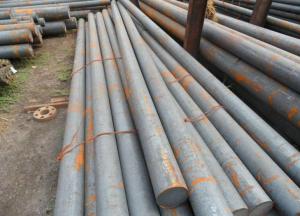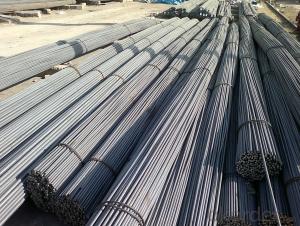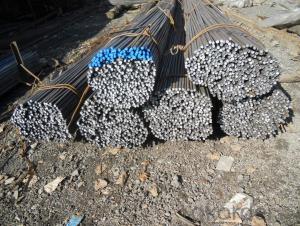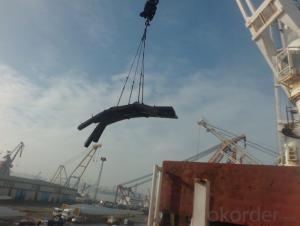HOT ROLLED ROUND BAR
- Loading Port:
- China Main Port
- Payment Terms:
- TT OR LC
- Min Order Qty:
- -
- Supply Capability:
- -
OKorder Service Pledge
OKorder Financial Service
You Might Also Like
Specifications of Wire Rod Q235:
Steel Grade: Q235, Standard: GB Diameter: 5.5mm, 6.5mm, 7mm,8mm,9mm,10mm,12mm,14mm
Diameter Tolerance:±0.3mm 6.5mm can be drawing into 2mm/8.0mm can be drawing into 3mm
Brand Name: N-RIVER Place of Origin: Hebei, China Mainland Application: construction, building etc
Chemical Composition:
Please kindly find our chemistry of our material based on Q235 as below for your information
Trademark | Rank | Chemical composition (quality score) % | | ||||
C | Si | Mn | S | P | | ||
| | |||||||
| ≤ |
| ≤ | ≤ | | ||
Q235 | A | 0.14-0.22 | 0.30 | 0.30-0.65 | 0.050 | 0.045 | |
Q235 | B | 0.12-0.20 | 0.30 | 0.30-0.70 | 0.045 | 0.045 | |
Trademark | Rank | Pulling Test | | ||||
Bend PointΔs/Mpa | Tensile Strength | Elongation Ratioδ5% | | ||||
| | |||||||
Thickness (Diameter) /MM | Thickness (Diameter) /MM | | |||||
≤16 | 16-40 | | ≤16 | 16-40 | | ||
≥ | | ≥ | | ||||
Q235 | A | 235 | 225 | 375-500 | 26 | 25 | |
Q235 | B | 235 | 225 | 375-500 | 26 | 25 | |
Usage and Applications of Wire Rod Q235:
After hot-rolled the products shaped into coil and delivery as finished product, including round, square, rectangular, hexagonal and so on. Since most of the products are round, it is generally called wire rod. Carbon steel wire rod is widely used in construction and manufacturing. Carbon steel wire rod is mainly used for reinforcement of reinforced concrete and welded structure or reprocessed (roberts , nail, etc.) materials, especially used to produce wire drawing, welding electrode, nails, spring, electronic, precise machinery parts and so on.
Packaging & Delivery of Wire Rod Q235:
Packaging Detail: products are packed in coil and then shipped by container or bulk vessel
Each coil weight: 2-3MT
Delivery Detail: within 45 days after received deposit or LC.
Label: to be specified by customer, generally, each bundle has 1-2 labels
Trade terms: FOB, CFR, CIF
- Q: Can steel round bars be used in the manufacturing of conveyor systems?
- Yes, steel round bars can be used in the manufacturing of conveyor systems. Steel is a strong and durable material that can withstand heavy loads and provide stability and support to conveyor systems. Steel round bars can be used as rollers or shafts in conveyor systems to facilitate the movement of materials or products along the conveyor belt. The smooth surface of the round bars allows for easy rotation and reduces friction, ensuring the smooth operation of the conveyor system. Additionally, steel round bars can be easily customized to fit specific conveyor system requirements, making them versatile and suitable for various industrial applications.
- Q: How are steel round bars classified based on their shape?
- Steel round bars are classified based on their shape as either hot-rolled or cold-drawn round bars.
- Q: Can steel round bars be painted?
- Yes, steel round bars can be painted.
- Q: Are steel round bars suitable for bearing applications?
- Yes, steel round bars are suitable for bearing applications. They offer high strength, durability, and excellent load-bearing capabilities, making them commonly used in various industries such as automotive, construction, and machinery.
- Q: What is the maximum silicon content allowed for steel round bars?
- The maximum silicon content allowed for steel round bars is typically around 0.35%.
- Q: Can steel round bars be hardened or tempered?
- Yes, steel round bars can be hardened or tempered. Hardening is a heat treatment process that involves heating the steel to a specific temperature and then rapidly cooling it, typically by quenching it in water or oil. This process increases the hardness and strength of the steel, making it more resistant to wear and deformation. Tempering, on the other hand, is a heat treatment process that involves reheating the hardened steel to a lower temperature and then cooling it slowly. This process reduces the brittleness of the steel and improves its toughness and ductility. Both hardening and tempering can be done on steel round bars to achieve specific mechanical properties desired for various applications.
- Q: Can steel round bars be used in food processing industries?
- No, steel round bars are generally not suitable for use in food processing industries as they can corrode and contaminate the food. Stainless steel, on the other hand, is commonly used in such industries due to its corrosion resistance and hygienic properties.
- Q: Can steel round bars be used in the manufacturing of shafts?
- Yes, steel round bars can be used in the manufacturing of shafts. Steel round bars are often used as raw materials for shaft manufacturing due to their high strength, durability, and excellent mechanical properties. The round shape of the bar allows for easier machining and forming processes, making it suitable for creating shafts of various sizes and lengths. Additionally, steel round bars can be heat treated to enhance their hardness, strength, and wear resistance, further improving their suitability for shaft applications.
- Q: Can steel round bars be used for tooling applications?
- Steel round bars can indeed be used for tooling applications. Steel is a highly versatile material that possesses excellent strength, durability, and resistance to wear and tear. Round bars made of steel can be machined, heat treated, and shaped to create various tools such as punches, dies, drills, and lathe tools. The round shape of the bars allows for easy machining and shaping processes. Additionally, steel round bars can be further enhanced with surface treatments or coatings to improve their performance in specific tooling applications. Overall, steel round bars are commonly used in tooling applications due to their excellent mechanical properties and adaptability.
- Q: Can steel round bars be used in the oil and gas industry?
- Indeed, the oil and gas industry finds great utility in steel round bars. These bars find widespread application across various sectors within the industry, encompassing drilling, production, and transportation of oil and gas. Their exceptional durability and high strength render them well-suited for enduring the arduous and demanding conditions typically encountered in this sector. They play a crucial role in the construction of drilling equipment, such as drill collars and drill pipes, along with the production of valves, pumps, and other vital components. Moreover, steel round bars contribute to the fabrication of pipelines and offshore platforms, wherein they provide structural support and guarantee the integrity of the infrastructure. All in all, the oil and gas industry deems steel round bars indispensable due to their robustness, dependability, and capacity to withstand the challenging environments encountered within this sector.
Send your message to us
HOT ROLLED ROUND BAR
- Loading Port:
- China Main Port
- Payment Terms:
- TT OR LC
- Min Order Qty:
- -
- Supply Capability:
- -
OKorder Service Pledge
OKorder Financial Service
Similar products
Hot products
Hot Searches
Related keywords



